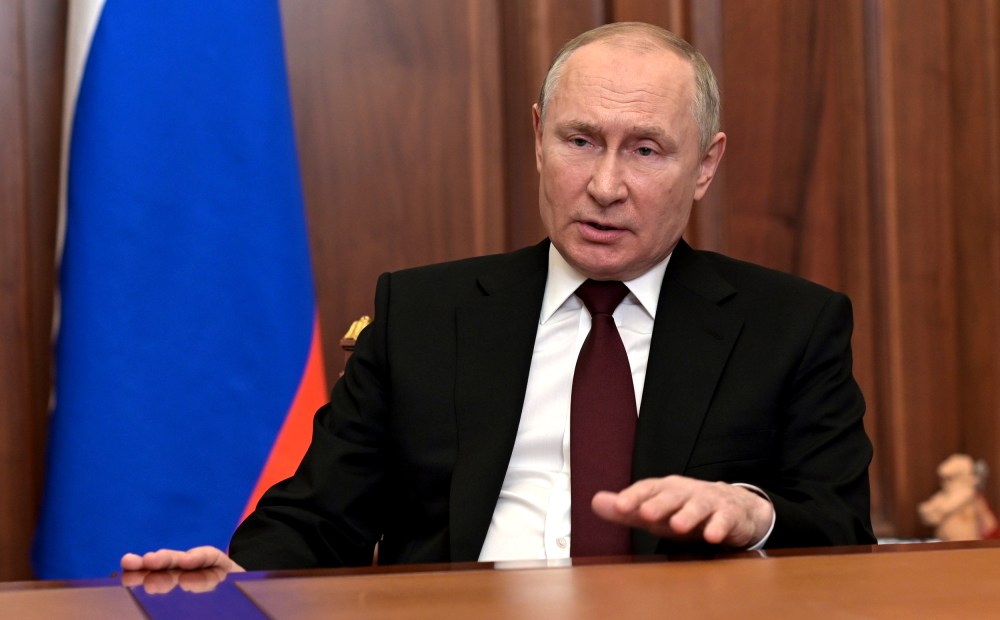Russian President Vladimir Putin ordered troops into Ukraine’s separatist-held Donbas region on Monday, prompting the international community and Russia experts to frantically speculate on what Moscow’s next step could be.
While much attention has been paid to what Putin did, the national conversation has paid less attention to what he said. In his speech announcing the troop movement, Putin also posited a radical and revisionist account of regional history by claiming that Ukraine was “created by Russia” and incapable of self-governance.
Putin’s denial of Ukraine’s existence as a nation with its own history and right to self-determination provides a window into what’s motivating him.
Putin’s speech was clarifying, making more explicit the logic of the war that he seems increasingly willing to wage in Ukraine. It also laid out the dehumanizing and annihilating nature of an imperial worldview. As Yale historian Timothy Snyder recently explained to MSNBC, “When you deny that another nation exists, you’re making a claim that it’s OK to destroy that other nation.”
Kristaps Andrejsons has a helpful big-picture summary of Putin’s cataloging of historical grievances in Foreign Policy — points that Putin has made versions of before, but that analysts say he compiled in an unusually forceful and comprehensive fashion as a rationale for use of force in his speech:
Putin’s vision of history is clear—if viciously wrong. A great Russia once existed, of which Ukraine was but a part. The bad communists, like [Bolshevik leader Vladimir] Lenin and [Soviet leader Nikita] Khrushchev and their successor Mikhail Gorbachev, divided up that great Russia in an artificial way, creating divisions where none existed before. Implicit in this is that Ukrainians who say differently are deluded or manipulated by others. Now, that natural vision has to be restored by a strong leader, walking in the footsteps of Stalin.
I asked Ben Judah, a senior fellow at the Atlantic Council’s Europe Center, how he interpreted Putin’s speech, and he noted that “the intensity and anger in Putin’s speech was disconcerting to most analysts of Kremlin politics.”
“Gone was the sense of a man calculating with a cool distance from the matter at hand that Putin has long had,” Judah said. “Instead speaking was a man who looked like he had given up on negotiations.”

Judah explained that Putin’s conception of how Russia should pursue bringing Ukraine back under Moscow’s influence would until recently have been considered a radical position within the Russian political establishment. “Putin’s views that Russians, Ukrainians and Belarus not only form a single cultural sphere, but are one people — requiring political union — have long existed in Moscow and enjoyed prominence in the political and military castes of the czarist empire and Soviet Union,” he said. “But the idea that the Kremlin should go to war to compel such a new union militarily on its neighbors would have been seen as fringe, reactionary, even ludicrous, in the Russian conversation as little as a few years ago.”
During his speech, Putin claimed that “modern-day Ukraine was in full and in whole created by Russia — Bolshevik, Communist Russia to be precise.”
But as Snyder, who is the author of a number of books on Ukrainian, Russian and Soviet history, said of Putin in an interview this week, his “specific claim is that the Soviet Union created Ukraine — the opposite is closer to the truth.”












